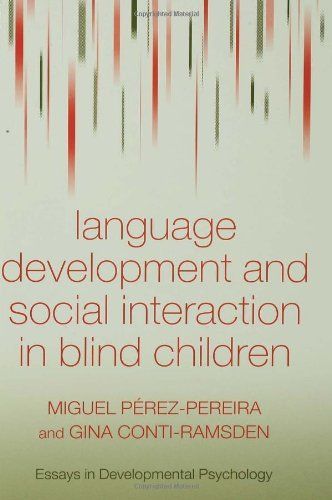
Language Development and Social Interaction in Blind Children
This book provides an up-to-date account of blind children's developing communicative abilities with particular emphasis on social cognition and language acquisition from infancy to early school age. It purports to foster dialogue between those interested in the study of typically developing children and those interested in the development of children who are blind and to provide insights and new explanations of why the development of blind children may differ from that of sighted children. The book also aims to identify and examine current theoretical issues which are likely to be at the centre of developments in the fields of child language and developmental psychology. Language Development and Social Interaction in Blind Children is also a timely book. The study of blind children's development constitutes a unique opportunity to study the effect of vision on development, and more specifically on the development of language and certain aspects of social cognition. Current interest in the development of "theory of mind" and perspective taking in language learning, make the case of blind children crucial to our understanding of certain aspects of psychological functioning. The book explores these issues, challenges some widely-held beliefs about the development of communication in blind children, and provides a cohesive picture of our knowledge to date.